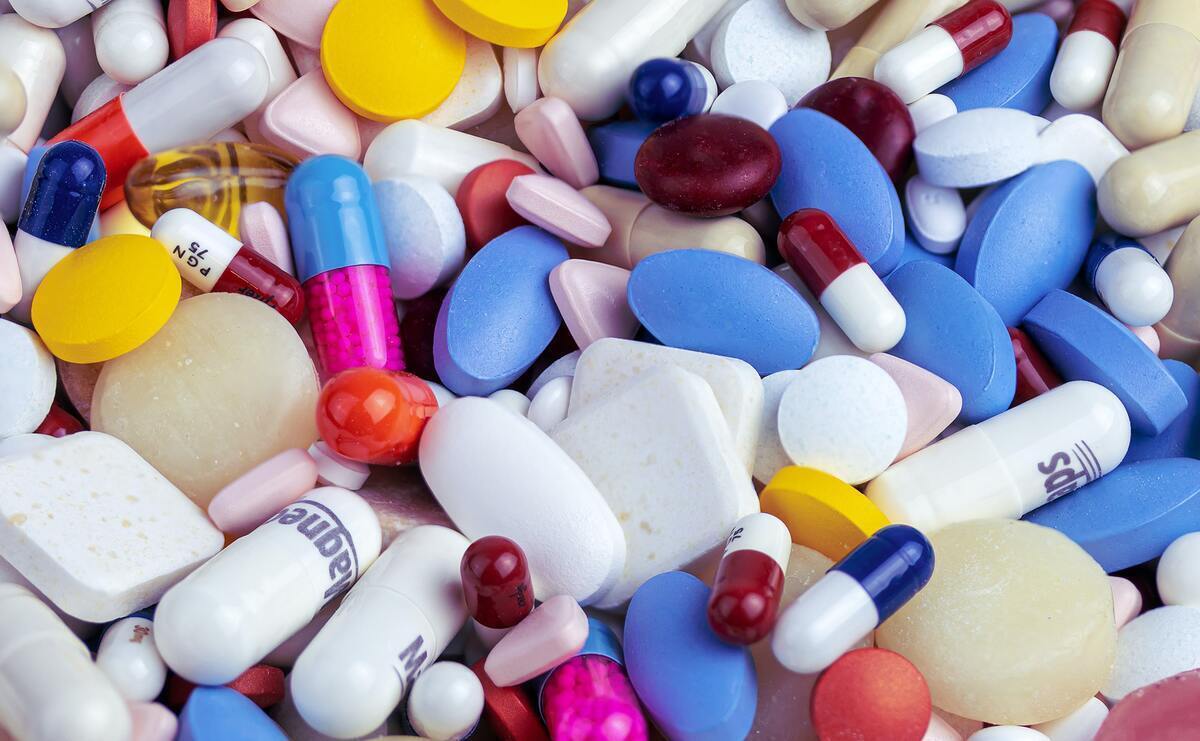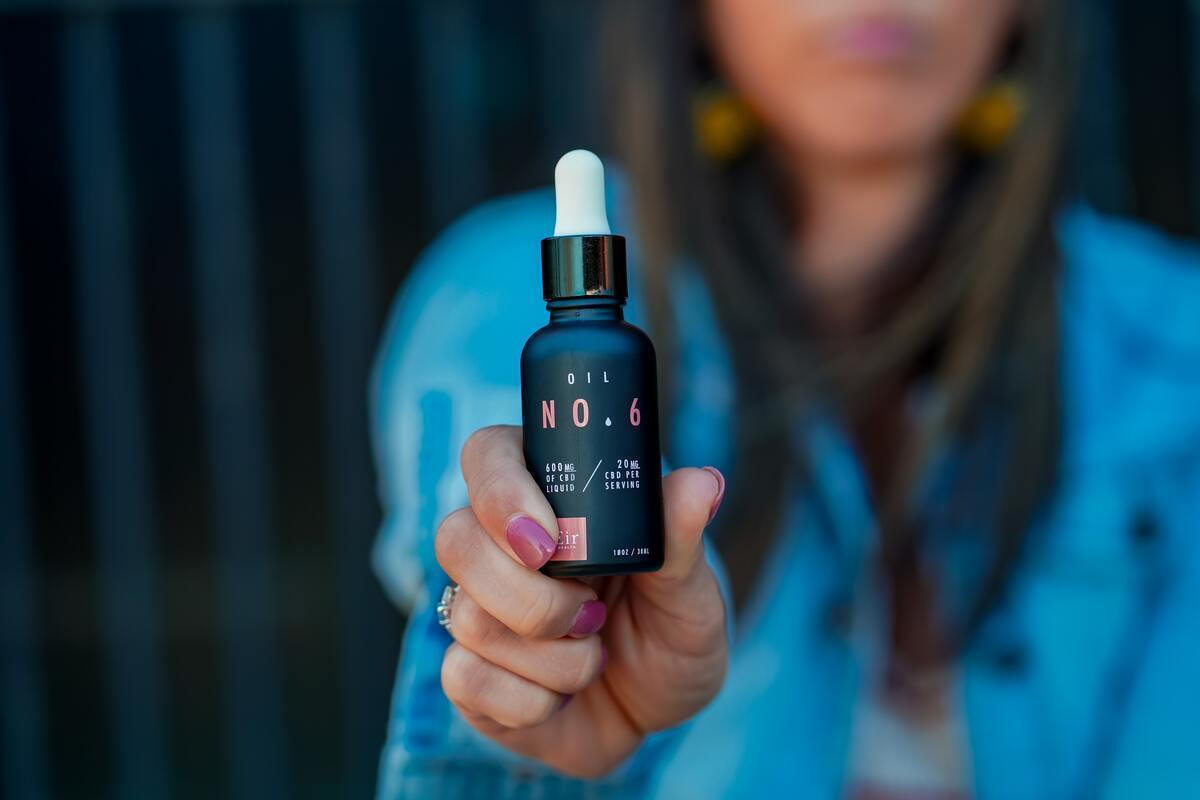There’s no denying that cannabidiol (CBD) has the potential to act as a therapeutic supplement for a wide selection of health conditions. Yet, if you’ve struggled with a certain ailment for some time, chances are you’re already on medication for relief. And in such cases, you may be hesitant to take CBD alongside these other medications.
Such hesitancy is natural. Since CBD is such a new phenomenon, research still isn’t even 100% sure how it interacts with the human body. Even more so, it’s not 100% clear how CBD drug interactions work.
For this reason, our article strictly focuses on what drugs should not be taken with CBD. We invite you to follow along as we take a deeper look at CBD interactions and how the medication you’re on may not be suitable for CBD usage.
Drug Groups with Negative CBD Interactions
The most thorough research on CBD drug interactions comes from Indiana University’s Department of Medicine, where they have reviewed hundreds of drugs and their interactions with CBD oil. The following list gives you some idea of what drug groups can have negative CBD interactions:
- Angiotension II Blockers
- Antiarrhythmics
- Antibiotics
- Antidepressants
- Anticonvulsants / Anti-Seizure Medications
- Antihistamines
- Antipsychotics
- Anesthetics
- Beta-Blockers
- Benzodiazepines
- Calcium Channel Blockers
- HIV Antivirals
- HMG CoA Reductase Inhibitors (Statins)
- Immune Modulators
- Non-Steroidal Anti-Inflammatory Drugs
- Oral Hypoglycemic Agents
- Proton-Pump Inhibitors (PPIs)
- Prokinetics
- Steroids and Corticosteroids
- Sulfonylureas
All groups of medication mentioned above are known as “pro-drugs.” Simply put, pro-drugs must be processed in the body in order to provide you with their therapeutic effects. In other words, these medications are inactive until consumed by the body.
Keep in mind that this list only covers groups of drugs. Therefore, certain drugs within these groups will have more negative interactions with CBD than others. We’re going to take a deeper look at some of these groups, the specific medication you’ll find in each, and how this specific medication interacts with CBD.
Understanding Drug Interactions
When you consume any medication, it must be metabolized in your body in order to become active. While it’s not always the case, most drug metabolization occurs in the liver. In scientific terms, this is known as the “first-pass effect” or “first-pass metabolism.”
Within your liver, drugs are broken down so your body can more easily use them. From there, enzymes found in the liver will transform the drug into metabolites. This is when a drug can have an influence on various parts of your body. Once the body is done with these influences, it will flush them out through urine.
How is CBD Metabolized?
When you initially consume CBD, it passes through your gut where it’s able to make its way through your bloodstream. Through this process, it enters your liver and is metabolized similarly to other drugs.
Since CBD and other medications have such a similar metabolization process, it comes as no surprise that it can have interactions with so many other drugs. However, the severity of these interactions greatly varies depending on how one particular drug is metabolized.
What Drugs Should Not Be Taken with CBD?
In order to offer a more in-depth guide, this section will cover specific drugs and how exactly they interact with CBD. More often than not, a negative CBD interaction occurs when a medication is dependent on the CYP450 system. While these negative interactions have yet to reveal fatal results, they usually result in moderate to severe side effects and insufficient concentrations of medication.
If you’re currently on a medication that’s not mentioned throughout this article, we highly recommend consulting your doctor before taking CBD. They’ll have a better idea of your health condition and whether or not CBD would be beneficial in therapeutic relief.
CBD and Antibiotics
If an antibiotic is metabolized through the cytochrome P450 enzyme system, then it may lead to negative interactions with CBD. However, there is no research to confirm exactly which antibiotics this occurs in and what effects will result.
All we currently have is a study suggesting that CBD may amplify the effects of antibiotics (and vice versa), notably due to CBD’s antimicrobial properties. Still, more research is required to confirm these findings.
CBD and Antidepressants
Within our liver, there are enzymes required to break down both CBD and antidepressants. Due to this relation, taking both at the same time may lead to insufficient concentrations of either drug.
Unfortunately, there is no research to confirm this theory. A study out of Pennsylvania State University simply found that an assortment of cannabinoids holds the potential to negatively interact with a number of medications; CBD and antidepressants being one of them.
CBD and Lexapro
As an escitalopram brand name, Lexapro is a standard selective serotonin reuptake inhibitor (SSRI) prescribed for a number of health conditions; most notably, insomnia. It’s believed that CBD may increase the effects of Lexapro, but no research has been confirmed. While this may sound like a good thing, it holds the potential to also increase side effects.
For this reason, the Depression Alliance recommends that people who want to try CBD should stop taking any antidepressant altogether. Though, such actions should be consulting with a doctor first.
CBD and Adderall
CBD’s interaction with attention-deficit/hyperactivity disorder (ADHD) medication is tricky. In a 2015 review, it was found that CBD may have positive effects in children with ADHD, including improved sleep, focus, and mood.
In terms of Adderall and other ADHD medications, we don’t much about how interactions work. According to a 2020 study, medical cannabis (which is high in CBD) may help to improve ADHD symptoms but gave no conclusive evidence as to whether it has a positive or negative interaction with medication.
CBD and Beta Blockers
Since some people use CBD for anxiety, those curious about the cannabinoid may already be on beta blockers. However, since both drugs interact with the cytochrome P-450 enzyme system, CBD could potentially slow down the rate at which beta blockers are processed in the body. In turn, this could lead to more substantial side effects from the medication.
Not to mention, both beta blockers and CBD have been found to lower blood pressure. Those taking both drugs at the same time may experience effects caused by very low blood pressure.
CBD and Ibuprofin
As a Non-Steroidal Anti-Inflammatory Drug (NSAID), Ibuprofin offers similar benefits for pain and inflammation as CBD. According to the Journal of Neurology Research, studies indicate that CBD and Ibuprofin don’t have reported negative drug interactions. However, this simply means no scientific data has yet to appear that reveals any concern between these interactions. In turn, if too much of one medication is taken alongside the other, it may lead to unforeseen consequences to nervous system pathology.
CBD and Lamictal
In a 2020 study, it was found that medical cannabis holds the potential to increase the side effects of Lamictal. These include dizziness, confusion, drowsiness, and difficulty concentrating. Senior citizens may also be at further risk of impaired judgment.
However, this research is concerned primarily with medical cannabis and its most active cannabinoid, tetrahydrocannabinol (THC). In terms of CBD, there is no conclusive evidence concerning how it interacts with Lamictal.
CBD and Metformin
When metformin and CBD are taken together, it can lead to severe decreases in blood sugar levels. Such interaction can lead to severe side effects, including dizziness, fainting, and injury. If you’re thinking about taking CBD for diabetes, you should seriously consult your doctor beforehand. Chances are CBD will not be able to provide you with as much therapeutic relief as other medications.
CBD and Prednisone
Similar to CBD, corticosteroids (such as Prednisone) inhibit the CYP450 enzyme system. This can lead to decreased glucocorticoid clearance which can result in a number of negative side effects. For this reason, you should never take CBD and prednisone together.
CBD and Tylenol
As a common pain-relieving medication, Tylenol and CBD may initially appear to go hand-in-hand. However, since CBD can interact with acetaminophen (due to the way both are processed in the body), it may result in mild side effects.
Since side effects are mild, it’s considered relatively safe to take CBD and Tylenol in small quantities. Still, larger (and long-term) quantities should be avoided as we don’t have research indicating their safety.
CBD and Xanax
When it comes to anxiety, Xanax is one of the most prescribed medications. Since CBD may help relieve anxiety, some may wonder if the two are safe to take together.
The issue is Xanax (along with other benzodiazepines) is broken down through P450 enzymes. When you take CBD, it inhibits P450 enzymes which can lead to your body having difficulty breaking down Xanax. In turn, you may not garner the full effects of Xanax while taking CBD.
Final Word
As you can see, most drug interactions between CBD and other medications are minimal. However, some can be severe and in these cases, CBD should be avoided at all costs.
Still, regardless of severity, it’s important to consult your doctor before taking CBD alongside another medication. They will have a much more intimate understanding of your health condition and whether or not CBD is right for you.
If you’re currently pregnant or breastfeeding, you should avoid CBD altogether. As with drug interactions, we simply don’t have enough research to confirm the safety of CBD use for women of this category.



